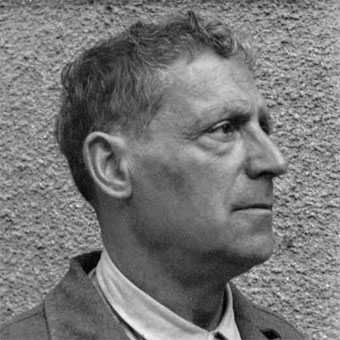
Paul Dessau
Paul Dessau began as Kapellmeister under Otto Klemperer (Cologne) and Bruno Walter * In the twenties, began to work as conductor and composer for films * From 1933 onwards, the year of his emigration to Paris, his music expresses his antifascist attitude in his choice of texts and subject matters * In Paris meets Leibowitz, receiving impulses from dodecaphony which further emphasizes the matter-of-factness of his music, in contrast to its expressionist density * 1942 brings first collaborations with Brecht whom he follows to Hollywood * In 1948 he returns to Germany, opting for East Germany and, as a consequence of his progressive political commitment, receives the national award of East Germany three times * Influenced by Hebrew-Jewish folk tradition * Synthesis of complex musical forms and immediate emotional appeal * His intention to touch the listener emotionally developed parallel to his pedagogical work with children
Works by Paul Dessau include:
Children's cantata(1932) for children's chorus and individual voices with piano or chamber orchestra
Symphony in one movement (1926/29)
Puntila (1957/59) opera
Orpheus and the Mayor (1930) opera
"No more and no less is required than a kind of music which enables people to gain insight into our times, with great pleasure and high morality." — Paul Dessau
